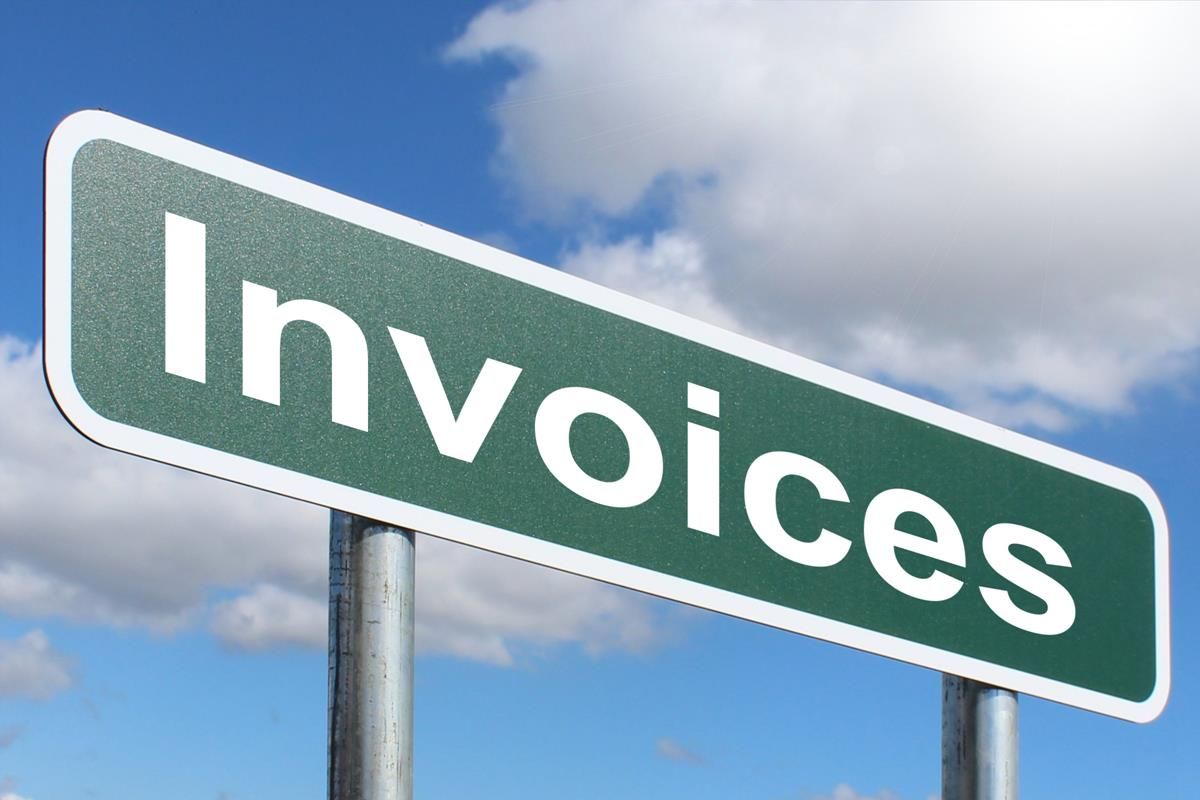In the cleaning products manufacturing industry, the management of overdue invoices is a critical aspect of maintaining a healthy cash flow and ensuring business sustainability. This article explores the various facets of collecting overdue invoices, from understanding the importance of timely payments to employing effective communication strategies and considering legal recourse for persistent delays. It also discusses best practices for invoice management and preventative measures to minimize future payment issues, ensuring that businesses are equipped to handle this common financial challenge effectively.
Key Takeaways
- Timely collection of invoices is vital for maintaining cash flow and financial stability in the cleaning products manufacturing industry.
- Implementing clear payment terms and automated invoicing systems can significantly improve invoice management and reduce the incidence of overdue payments.
- Effective communication, including prompt invoice reminders and professional negotiations for payment plans, is key to resolving delinquent accounts amicably.
- Legal action, such as small claims processes and collection agencies, should be considered as a last resort for chronically delayed payments.
- Preventative measures like credit checks, risk assessments, and late payment penalties are essential to safeguard against future payment issues.
Understanding the Importance of Timely Payments
The Impact of Overdue Invoices on Cash Flow
In our industry, cash flow is the lifeblood that keeps operations running smoothly. Overdue invoices can strangle that flow, leading to a domino effect of financial complications. We must be vigilant in monitoring invoice details to prevent a backlog of unpaid bills.
- Categorizing overdue accounts helps us prioritize collection efforts.
- Addressing common causes of delays can streamline future transactions.
- Mitigating impact involves having contingency plans for cash flow interruptions.
Ensuring we secure overdue accounts is not just about the money; it’s about maintaining our financial stability and reputation in a competitive market.
By taking these steps, we safeguard our business against the risks associated with delayed payments and preserve the trust we’ve built with our clients.
Legal Aspects of Payment Terms in Contracts
In the cleaning products manufacturing industry, we understand that clear payment terms are not just a formality; they’re a cornerstone of our financial stability. Contracts must articulate these terms with precision to avoid ambiguity that could lead to disputes.
Legal counsel is often necessary to ensure that our contracts are not only fair but also enforceable. This step is crucial, especially when dealing with large orders or new clients. A well-drafted contract protects both parties and serves as a reference in case of disagreements.
We must be proactive in addressing payment terms within our contracts to prevent delinquency.
Remember, effective communication and offering flexible payment options can also play a significant role in preventing overdue invoices. By being upfront about our expectations and willing to work with clients who may face temporary financial challenges, we foster a cooperative environment that benefits everyone involved.
Building Strong Relationships with Clients for Future Business
We understand that strong client relationships are the bedrock of a sustainable business. Trust and mutual respect are key to ensuring that invoices are paid on time. By emphasizing flexibility in payment options, we cater to our clients’ needs while safeguarding our cash flow.
- Offer personalized service experiences
- Communicate proactively and transparently
- Recognize and reward prompt payments
We’re committed to working with our clients to find solutions that benefit both parties. It’s not just about the immediate invoice; it’s about laying the groundwork for a long-term partnership.
By fostering these relationships, we not only improve our chances of collecting overdue invoices but also enhance the potential for future business opportunities.
Best Practices for Invoice Management
Setting Clear Payment Terms
We must establish clear payment terms at the outset. This clarity prevents misunderstandings and sets expectations. Here’s what we focus on:
- Invoice due dates
- Acceptable payment methods
- Consequences of late payments
Transparency is key. We communicate these terms upfront, ensuring they are understood and agreed upon. This is our foundation for a trustworthy transaction.
By being upfront about payment expectations, we pave the way for smoother financial interactions.
Remember, every invoice is a binding agreement. We’re not just selling cleaning products; we’re selling reliability and professionalism. Our terms reflect that commitment.
Utilizing Automated Invoicing Systems
In the world of cleaning products manufacturing, we’ve embraced technology to streamline our invoicing process. Automated invoicing systems are our allies in ensuring accuracy and timeliness. With a few clicks, we generate and send out invoices, cutting down on manual errors and saving precious time.
Automation isn’t just about convenience; it’s a strategic move. We’ve seen a reduction in overdue invoices since we started scheduling automatic payment reminders. Here’s how we do it:
- Configure invoice templates with pre-set payment terms
- Schedule automatic reminders for upcoming and past-due payments
- Integrate with payment gateways for easy client transactions
By automating, we maintain a consistent billing cycle and reinforce our payment expectations with clients.
We’re not just managing overdue invoices; we’re preventing them. Our approach combines clear payment terms, negotiation skills, and cutting-edge technology for efficient receivables management. It’s a game-changer in maintaining healthy cash flow.
Regular Monitoring and Follow-Up Procedures
We know that staying on top of invoices is not just about sending them out. It’s about vigilance and consistency. Regular monitoring is our safeguard against financial discrepancies. We implement quality control measures that include verifying invoices for accuracy and auditing payment records for financial integrity.
Regular checks ensure correct payments and strengthen supplier trust.
By doing so, we not only maintain a clear picture of our accounts receivable but also demonstrate our commitment to transparency and reliability. Our follow-up procedures are systematic and non-intrusive, designed to keep the lines of communication open with our clients. Here’s a quick rundown of our follow-up timeline:
- Immediately after the invoice is sent: Confirmation of receipt
- One week before the due date: Gentle reminder
- On the due date: Polite payment request
- One week after the due date: Assertive follow-up
- Two weeks after the due date: Final notice before further action
Effective Communication Strategies
Initial Invoice and Payment Reminders
We know the drill: invoices are sent, and then the waiting game begins. But when payments lag, we don’t sit idle. We craft effective reminder messages that strike the right balance—professional yet empathetic. It’s not just about the money; it’s about maintaining a relationship.
Personalization is key. We don’t blast generic emails; we tailor our follow-ups. This approach not only shows respect for our clients but also increases the likelihood of debt recovery. When standard reminders don’t suffice, we’re ready with a plan B.
Implementing tailored payment plans for outstanding invoices can be a game-changer. It demonstrates our flexibility and understanding of our clients’ situations, fostering goodwill and encouraging prompt payment.
Remember, consistency is crucial. We set a schedule for sending reminders and stick to it, ensuring our clients know we’re on top of our accounts receivable.
Negotiating Payment Plans with Delinquent Accounts
When we’re faced with delinquent accounts, our approach is always strategic. We open the lines of communication and tailor our strategies to each unique situation. It’s about finding a balance that ensures we collect unpaid fees while maintaining valuable business partnerships.
Flexibility is key. We propose various payment plan options, allowing clients to choose one that aligns with their current financial status. This demonstrates our understanding and commitment to a long-term relationship.
- Assess the client’s ability to pay
- Offer multiple payment plan options
- Agree on a revised payment schedule
- Document the new agreement
We never underestimate the power of a well-negotiated payment plan. It can transform a challenging situation into an opportunity for strengthening client trust.
By being proactive, we not only secure our receivables but also reinforce the foundation for future business endeavors.
Maintaining Professionalism in Difficult Conversations
When we’re faced with the challenge of overdue invoices, it’s crucial to keep our cool. Professionalism is key in these scenarios, not just for the immediate collection, but for the long-term relationship with our clients. We must approach each conversation with a clear head and a strategic mindset.
Communication is our most powerful tool. We listen actively, speak calmly, and express empathy towards our clients’ situations. It’s about finding a balance between firmness and understanding. Here’s a simple list to keep us on track:
- Remain respectful and patient
- Avoid accusatory language
- Provide clear and concise information
- Keep detailed records of all interactions
By maintaining professionalism, we not only increase the likelihood of collecting overdue payments but also pave the way for future business opportunities.
We also recognize when it’s time to escalate matters. Utilize debt collection agencies for recovering unpaid fees efficiently. Negotiate payment plans with delinquent clients professionally and maintain positive client relationships through open communication about fees.
Legal Recourse for Chronic Payment Delays
When to Consider Legal Action
We’ve reached a critical juncture. Legal action is a serious step, but sometimes it’s the only way to signal our resolve. Before we proceed, we must exhaust all other avenues. Have we been clear and consistent in our communication? Have we offered flexible payment options? If the answer is yes, and payments are still not forthcoming, it’s time to consider the courtroom.
- Review the contract for legal stipulations
- Calculate the cost-benefit ratio of legal proceedings
- Ensure all documentation of the debt is in order
Taking legal action is not our first choice, but it is a necessary tool in our arsenal to protect our business.
Remember, legal action can be costly and time-consuming. It’s a balance between the need to collect overdue payments and the potential strain on resources. We must weigh these factors carefully to make an informed decision.
Understanding the Small Claims Process
When our attempts to collect overdue invoices fail, we turn to the small claims court as a last resort. It’s a legal avenue that’s less formal and more cost-effective than other court systems. Small claims court is designed for us to represent ourselves, without the need for expensive legal representation.
Jurisdiction varies by location, but typically, small claims courts handle disputes up to a certain dollar amount. Here’s a quick rundown of the process:
- Filing a claim: We submit the necessary paperwork and evidence of the debt.
- Serving the defendant: The debtor must be legally notified of the claim.
- The hearing: Both parties present their case, and the judge makes a decision.
It’s crucial to have all documentation organized and ready to present. This includes contracts, correspondence, and records of any previous attempts to collect the debt.
If the judge rules in our favor, we’ll receive a judgment for the debt owed. However, it’s important to note that a judgment doesn’t guarantee payment. We may still need to take further steps to collect the awarded amount.
The Role of Collection Agencies
When our internal efforts fail to recover overdue payments, we turn to collection agencies. These specialized firms step in as a last resort, wielding expertise in debt recovery. They operate under strict regulations to ensure fair practices.
- Collection agencies assess the debtor’s ability to pay.
- They initiate contact through letters and calls.
- They negotiate payment arrangements.
- They report to credit bureaus, impacting the debtor’s credit score.
Engaging a collection agency signals a serious step in the recovery process. It’s a move we make with careful consideration, as it can affect our relationship with the client.
Remember, the goal is to recover funds while preserving professional relationships. Collection agencies should be seen as partners in this endeavor, not just enforcers.
Preventative Measures to Minimize Future Issues
Credit Checks and Risk Assessment
We can’t afford to fly blind when it comes to extending credit. Credit checks are our first line of defense, providing a snapshot of a client’s financial health. By assessing credit history, we gauge the risk of late or missed payments.
Risk assessment isn’t just about numbers; it’s about understanding the context. We consider industry trends, economic forecasts, and payment histories. This holistic view informs our decision-making, helping us to avoid potential pitfalls.
- Review credit reports
- Analyze payment patterns
- Evaluate financial stability
By implementing risk management strategies, we’re not just protecting our bottom line; we’re ensuring the sustainability of our business in the volatile world of cleaning products manufacturing.
Implementing Late Payment Penalties
We understand the frustration of overdue invoices. To combat this, we’ve established structured penalties for late payments, ensuring that the consequences are clear and predictable. Conversely, we offer incentives for early payments, rewarding those who help maintain our cash flow.
By leveraging technology, we streamline our processes with electronic invoicing and automated payment reminders. This not only makes debt collection more efficient but also minimizes the administrative burden on our team.
It’s crucial to communicate these policies upfront. Transparency with our clients prevents misunderstandings and fosters a culture of prompt payment.
Here’s a quick glance at our penalty structure:
- 1-15 days overdue: 2% penalty
- 16-30 days overdue: 5% penalty
- Over 30 days overdue: 10% penalty
Remember, the goal is not just to penalize but to encourage timely payments and preserve the financial health of our business.
Educating Clients on the Importance of Prompt Payment
We know that knowledge is power. By educating our clients on the importance of prompt payment, we empower them to help us help them. Timely payments are the lifeblood of our business, ensuring we can continue to provide top-quality products and services.
Education is not just about informing; it’s about building a culture of mutual respect and understanding. We make it clear that prompt payments are not just beneficial for us, but for them as well—maintaining a healthy supply chain is in everyone’s best interest.
- Explain the impact of late payments on our operations
- Highlight the benefits for them, like uninterrupted service
- Provide examples of how prompt payment contributes to a strong business relationship
We’re in this together. Prompt payments reflect a partnership that values reliability and sustainability.
By fostering this culture, we minimize future payment issues and strengthen our business ecosystem.
To safeguard your financial health and ensure the continuity of your business, it’s crucial to implement preventative measures against potential debt collection issues. At Debt Collectors International, we specialize in providing tailored solutions that cater to the unique needs of various industries. Our expert collectors are equipped with over 30 years of experience and are ready to serve you with unparalleled results and performance. Don’t let overdue accounts disrupt your business operations. Take the first step towards securing your receivables by visiting our website and exploring our comprehensive collection services. Act now to minimize future issues and maintain a robust financial standing.
Frequently Asked Questions
How do overdue invoices affect a cleaning products manufacturing business’s cash flow?
Overdue invoices can significantly disrupt the cash flow of a cleaning products manufacturing business by limiting the available working capital needed for daily operations, purchasing raw materials, and investing in growth opportunities. This can lead to difficulties in meeting financial obligations and potentially harm the company’s financial health.
What legal aspects should be considered when setting payment terms in contracts?
When setting payment terms in contracts, it’s important to ensure they are clear, enforceable, and compliant with relevant laws and regulations. This includes specifying due dates, late payment penalties, and the legal recourse available in case of non-payment. Consulting with a legal professional can help tailor the terms to the specific needs of the business.
Why is building strong relationships with clients important for managing overdue invoices?
Building strong relationships with clients is crucial as it fosters trust and communication, which can lead to more cooperative resolution of payment issues. Clients who value their relationship with your business are more likely to prioritize payments and work with you to resolve any financial difficulties that may cause delays.
How can automated invoicing systems improve invoice management?
Automated invoicing systems streamline the billing process, reduce errors, and save time. They can automatically send out invoices and payment reminders, track the status of payments, and provide real-time financial reporting, which helps in quickly identifying and addressing overdue accounts.
What steps should be taken before considering legal action for chronic payment delays?
Before legal action is taken, all other avenues should be exhausted. This includes sending multiple payment reminders, negotiating payment plans, and possibly involving a collection agency. If these efforts fail, it’s important to evaluate the cost-effectiveness of legal proceedings and consult with a legal professional to understand the likelihood of successful debt recovery.
What preventative measures can manufacturers take to minimize future overdue invoices?
Manufacturers can conduct credit checks to assess the risk of new clients, implement late payment penalties to incentivize timely payments, and educate clients on the importance of prompt payment for maintaining a healthy supply chain. Additionally, clear communication of payment terms and consistent follow-up on outstanding invoices can help reduce the incidence of overdue payments.





